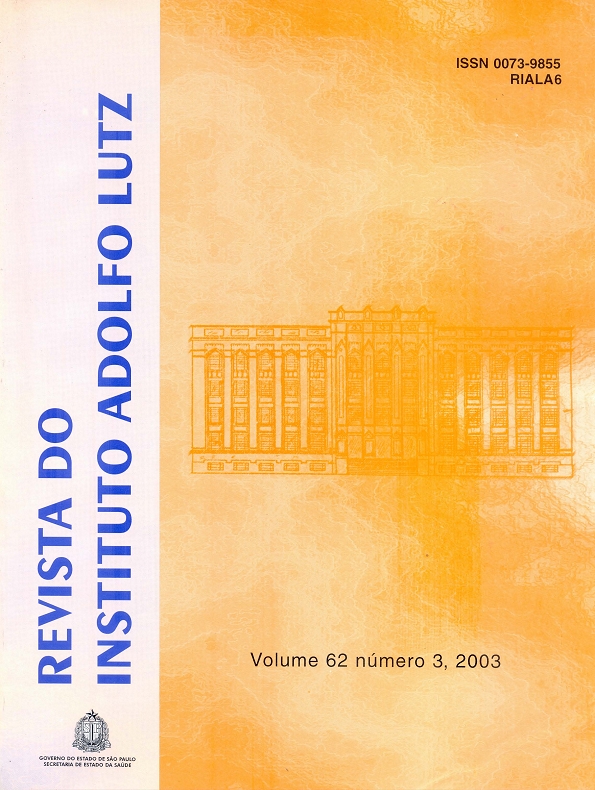Resumo
O objetivo deste trabalho foi padronizar a metodologia para obtenção de cultura primária de condrócitos de cartilagem hialina articular humana para sua utilização em transplante autólogo. Foram selecionados cinco pacientes do Instituto de Ortopedia e Traumatologia do Hospital das Clínicas da Faculdade de Medicina da Universidade de São Paulo (IOT-HC-FMUSP) sem doença degenerativa articular, com indicação de cirurgia artroscópica para correção de afecção do ligamento cruzado anterior do joelho. Os fragmentos de cartilagem articular pesando aproximadamente 300-500 mg foram colocados em placas de Petri contendo meio de Eagle modificado por Dulbecco´s (DMEM) com 40µg/ml de gentamicina. Cada fragmento foi cortado e colocado em 2mg/ml de colagenase diluída em meio DMEM com 10% de soro fetal bovino (SFB). As células foram isoladas e cultivadas em frasco de cultura T25 em meio DMEM suplementado com 10% de SFB. As células aderiram ao frasco de cultura após 24 h e após o 3° dia de cultivo as células apresentavam morfologia elipsóide e estrelada. As culturas foram fixadas e coradas intensamente com azul de toluidina sugerindo que as células iniciaram a síntese de uma nova matriz extracellular. A curva de crescimento mostrou que a razão de crescimento foi em torno do segundo e terceiro...
Referências
1. Aulthouse, A. et al. Expression of the human condrocyte phenotype in vitro. Vitro Cell. Dev. Biol., 25:659-68,1989.
2. Archer, W.C. et al. Phenotypic modulation in sub-populations of human articular chondrocytes in vitro. J .Cell. Sci, 97: 361-71, 1990.
3. Benya, P.D. et al. The progeny of rabbit articular chondrocytes synthesize collagen types I and III type I trimer, but not type II. Verifications by cyanogens bromide peptide analysis. Biochemistry,16: 865-72,1977.
4. Brittberg, M. et al. Treatment of deep cartilage defects in the knee with autologus chondrocyte transplantation. N. Engl. J. Med.,331: 889-95, 1994.
5. Folkman, J.; Moscona, A. Role of cell shape in growth control. Nature, 273: 345-9, 1978.
6. Freshney, R.I. Culture of animal cells: a manual of basic techniques. New York, Alam, R. Liss Inc., 1987.
7. Glowacki, J. et al. Cell shape and phenotypic expression in chondrocytes. Proc. Soc. Exp. Biol. Med., 172: 93-8, 1983.
8. Gorti, G.K. et al. Cartilage tissue engineering using cryogenic chondrocytes. Arch. Otolaryngol. Head Neck Surg., 129 (8): 889-93, 2003
9. Green, W.T. Behavior of articular chondrocytes in cell culture. Clin. Orthop., 75: 248-60, 1971.
10. Green, W.T. Articular Cartilage Repair: Behaviorof rabbit chondrocytes during tissue culture and subssequentallografting. Clin. Orthop., 124: 237-50, 1977.
11. Hascall, V. C.; Hascall G. K. Proteoglycans in Hay, E.D (ed). Cell Biology of extracellular matrix. New York , p. 39-52, 1981.
12. Kuriwaka, M. et al. Optimum combination of monolayer and three-dimensional cultures for cartilage-like tissue engineering. Tissue Eng., 9(1): 41-9, 2003.
13. Mandl, E.W. et al. Serum free medium supplemted with highconcentration FGF2 for cell expansion culture of human ear chondrocytes promotes redifferentiation capacity. Tissue Eng., 8(4): 573-80, 2002
14. Manning, W. K. et al. Isolation and culture of chondrocytes from human articular cartilage. Arthritis Rheum., 10: 235-93, 1967.
15. Mayne, R.; Burgeson R.E. Collagen types in cartilage. In: Articular Cartilage Biochemistry (Kuettner, Schleyerbach and Hascall)ed. New York, Raven Press, 1987.
16. Van Der Rest, M.; Mayne R. Type IX collagen proteoglycan form cartilage is covalently cross-linked to type II collagen. J. Biol. Chem., 26: 1615-8, 1988.
17. Von Der Mark, K. et al. Relationship between cell shape and type of collagen synthesized as condrocytes lose their cartilage phenotype in culture. Nature, 267: 531-2, 1977.
18. Watt, F. M. Effect of seeding density on stability of the differentiated phenotype of pig articular chondrocytes in culture. J. Cell. Sci., 89: 373-8, 1988.

Este trabalho está licenciado sob uma licença Creative Commons Attribution 4.0 International License.
Copyright (c) 2003 Fabio T. Kitadai, Cristina A. Figueiredo, Suely P. Curti, Luis Eugênio G. Leme, Clara D. R. Carelli, Marco M. Amatuzzi
